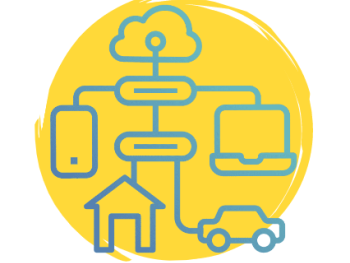Unlocking Success
Resources to Naviating Business Technology
The ever-evolving landscape of business technology presents a myriad of challenges, making it increasingly difficult for organizations to navigate and stay ahead in today's competitive market.
What is IT?
The term “IT” stands for information technology and it is a broad term that encompasses the use of computers, networks, software, and other technologies to store, process, and communicate information. In today’s world, IT is an essential part of any business. It enables businesses to operate more efficiently and effectively by providing them with the tools they need to manage their operations. In this blog post, we will explore some examples of IT in business.
What does an IT Support company do?
An IT Support Company provides essential technical support services for businesses and organizations of all sizes. They are highly knowledgeable in a wide variety of technical areas, such as network administration, software and hardware installation and troubleshooting.
Businesses and organizations rely on IT Support Companies to keep their IT systems running smoothly and securely. IT Support Companies help their clients identify and address any potential IT issues, as well as providing preventative maintenance and support. This includes providing technical support for hardware and software, setting up and maintaining networks, and providing technical training.
IT Support Companies also provide essential services such as data recovery, backup, virus removal, system security, and storage solutions. They can also assist with the installation and customization of software applications, as well as providing technical support for web hosting and other online services.
In addition to providing support for IT systems and applications, IT Support Companies also specialize in design, development, and implementation of IT systems and applications. These services are essential for organizations and businesses that need to keep their IT systems up-to-date and secure.
In short, an IT Support Company is a great resource for businesses and organizations of all sizes. They provide essential technical support services and can help maintain and enhance the performance of their clients' IT systems.
Examples of IT in Business
Cloud Computing
Cloud computing is a type of IT that allows businesses to store data on remote servers instead of on physical hardware located on-site. This allows businesses to access their data from anywhere with an internet connection. Additionally, cloud computing can provide businesses with access to powerful applications that are not available on their own hardware. This can help businesses save money by reducing the need for expensive hardware and software investments.
Networking
Networking is another example of IT in business that enables businesses to connect multiple computers together so they can share resources such as files and printers. It also allows employees to communicate with each other more easily by providing them with access to email and instant messaging services. Additionally, networking can help businesses protect their data from unauthorized access by using security measures such as firewalls and encryption technologies.
Mobile Computing
Mobile computing is a type of IT that enables employees to access business applications and data from mobile devices such as smartphones or tablets while they are away from the office. This can help increase productivity by allowing employees to work remotely or while traveling without having to be tied down to a physical location or device. Additionally, mobile computing can help reduce costs associated with purchasing hardware for each employee since they will be able to use their own devices for work purposes.
Data Analytics
Data analytics is another example of IT in business that involves collecting data from various sources such as customer interactions or sales transactions and then analyzing it using specialized software programs or algorithms in order to gain insights into customer behavior or market trends. This type of analysis can help businesses make better decisions about how they allocate resources or develop new products or services based on what customers actually want rather than relying solely on guesswork or intuition alone.
Benefits of Using IT in Business
Using IT in business provides many benefits including increased efficiency, improved communication between employees, better customer service, reduced costs associated with purchasing hardware and software investments, enhanced security measures for protecting data from unauthorized access, improved decision making through data analytics, and increased productivity through mobile computing capabilities among others. Additionally, using IT in business helps companies stay competitive by giving them access to the latest technologies which can give them an edge over their competitors who may not have adopted these technologies yet.
There are many examples of IT in business which all provide different benefits depending on the specific needs of the company utilizing them. By understanding these examples and how they can benefit your organization you will be able to make informed decisions about which types of technologies you should invest in order to maximize your return on investment while staying competitive within your industry.

Why Your Business Needs to Go Paperless
The business world is constantly shifting, adapting to new technologies and strategies. One of the most valuable recent developments for businesses of all size is the shift towards a paperless workplace. Going paperless means that all the data and information within a business are stored digitally, without the need for physical documents or files that need to be printed.
Blog.



